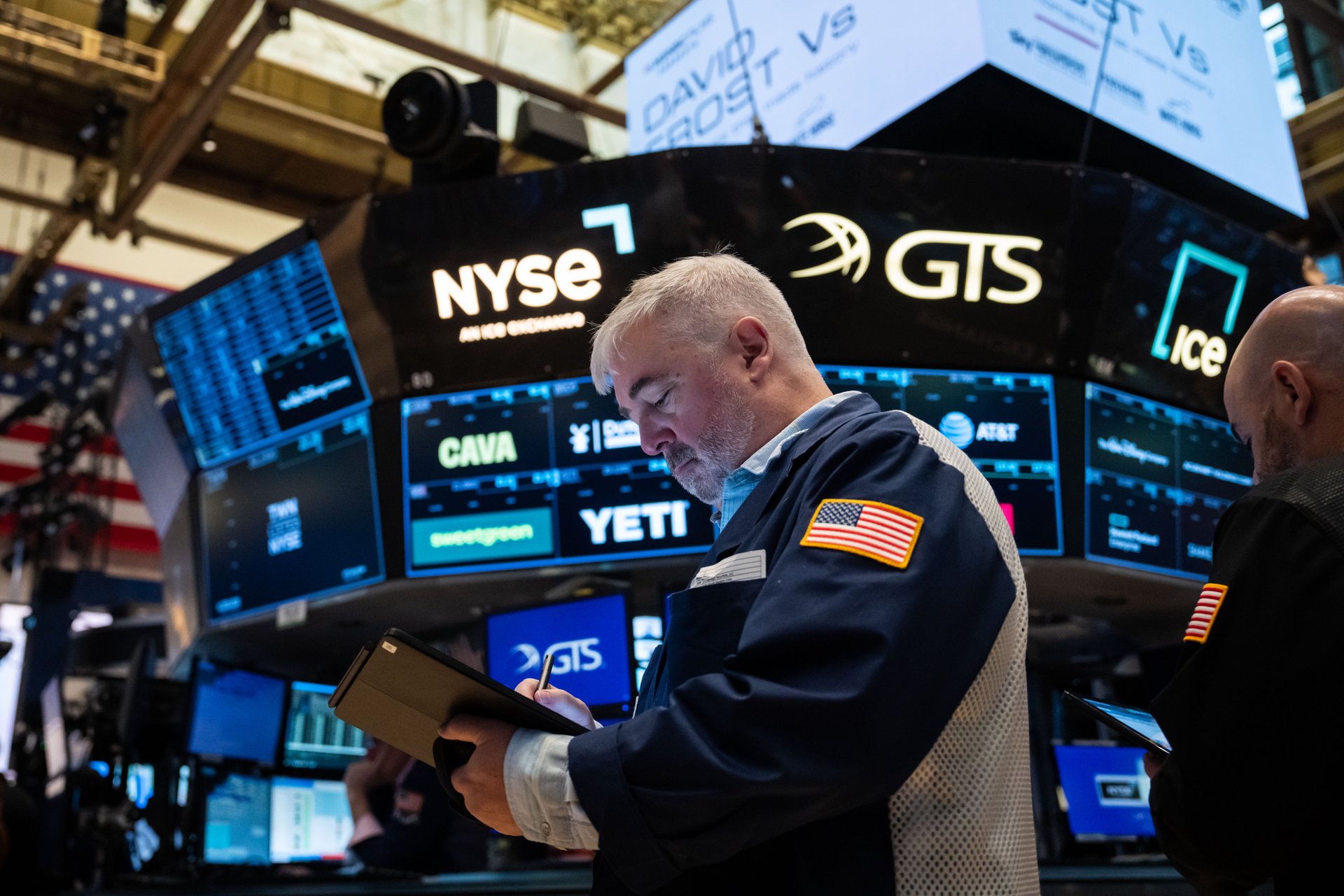Bank of America, Citigroup, Johnson & Johnson: Stocks to watch today
The latest batch of corporate earnings will reveal a lot about the state of the economy

Futures edged down Tuesday morning, with the S&P 500, Nasdaq, and Dow trading just below break-even, as investors braced for a flurry of corporate earnings. The muted open followed Monday’s tech-led rally, which briefly masked deeper market jitters tied to tariffs and macro uncertainty.
Suggested Reading
That rally capped a volatile session, with the Dow gaining 0.78%, the S&P 500 rising 0.79%, and the Nasdaq up 0.64%. All three indexes dipped into negative territory before recovering, lifted by tech stocks after the Trump administration announced a surprise tariff exemption. Apple (AAPL) climbed more than 2%, while Palantir Technologies (PLTR) jumped nearly 5% after NATO finalized its acquisition of the company’s AI-powered Maven Smart System.
Related Content
Auto stocks also rallied on hopes of tariff relief, after Trump floated the possibility of exemptions for carmakers shifting parts production. General Motors (GM) and Ford (F) both gained over 3%, though no formal policy details were released.
Now, the focus shifts to earnings
Bank of America (BAC), Citigroup (C), and Johnson & Johnson (JNJ) all reported results Tuesday before the bell, offering an early read on consumer credit, capital flows, and healthcare demand. Rent the Runway (RENT) also posted earnings, adding a data point from the consumer discretionary space.
After the close, United Airlines (UAL) and Interactive Brokers (IBKR) are set to report, offering insights from the travel and trading sectors still to come.
Bank of America beats — like other banks
Bank of America beat expectations in the first quarter, with EPS of $0.90 on $27.37 billion in overall revenue, lifted by a strong showing in its trading division. Like Goldman Sachs (GS), the bank benefited from market volatility, which juiced results even as the broader economic outlook remains uncertain.
Looking to Bank of America’s consumer banking division, revenue rose 3% to $10.5 billion, with combined credit and debit card spend hitting $228 billion — up 4% from a year ago. The bank added around 250,000 new consumer checking accounts, marking its 25th straight quarter of growth, and logged 4 billion digital logins, with 65% of sales now digitally enabled.
Still, CEO Brian Moynihan struck a cautious tone, noting that “we potentially face a changing economy in the future.”
Citi rides card growth and trading gains to a Q1 beat
Citigroup posted first-quarter 2025 net income of $4.1 billion, or $1.96 per share, on $21.6 billion in revenue — a 3% increase from a year ago. Growth was broad-based across all five core businesses, with standout performances in the Markets and Wealth divisions.
U.S. personal banking revenue rose 2% to $5.2 billion, powered by gains in Branded Cards and Retail Banking, though partially offset by a drop in retail services. Net interest income climbed 6%, fueled by loan growth in branded cards and wider deposit spreads in its retail banking.
Cancer drugs lift results for J&J
Johnson & Johnson beat Wall Street expectations in the first quarter, reporting adjusted earnings per share of $2.77 on revenue of $21.89 billion. Sales of cancer drug Darzalex jumped 20% year-over-year to $3.24 billion, helping drive 4.2% growth in the company’s Innovative Medicine segment.
The healthcare giant raised its full-year revenue guidance to between $91.6 billion and $92.4 billion, reflecting the impact of its Intra-Cellular Therapies acquisition and the addition of Caplyta, a treatment for bipolar depression. However, adjusted EPS guidance held steady at $10.50 to $10.70 as the company factors in tariffs, deal-related costs, and currency headwinds.
J&J also moved to reverse $7 billion previously set aside for talc-related legal settlements, after courts rejected its bankruptcy-based strategy for resolving lawsuits over its discontinued baby powder. The company maintains the claims are without merit and says it will defend them in state courts.
Meta’s $1.3 trillion empire under the microscope
In tech news, Meta (META) CEO Mark Zuckerberg took the stand Monday as the Federal Trade Commission resumed its antitrust trial against the company, zeroing in on claims that Meta cemented its dominance by acquiring Instagram and WhatsApp.
The FTC argues the deals were part of a “buy or bury” strategy to crush competition, and it wants Meta to divest both platforms. Zuckerberg pushed back, insisting the acquisitions benefited consumers and that Meta still faces intense pressure from rivals like TikTok and YouTube (GOOGL).
The outcome of the trial — set to run through July — could reshape not just Meta’s empire, but who gets to decide what “competition” really means in the platform era.